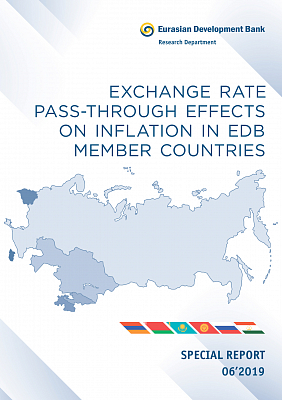Exchange rate pass-through effects on inflation in EDB Member Countries

-
Full text
PDF, 660.74 Kb
This Special Report examines the pass-through effect of the exchange rate on inflation in member countries of the Eurasian Development Bank. Special attention is paid to assessing pass-through effect changes that occurred in recent years and to analyzing asymmetric and non-linear relationships between exchange rates and inflation in the region’s countries. The results obtained confirm the exchange rates’ significance for inflation movements in EDB economies. That said, in 2015-2018 the exchange rate’s pass-through effect on inflation decreased in magnitude in most of the States under review, possibly on account of the monetary and exchange rate policy reforms implemented – in particular, a switch to a more flexible exchange rate and more effective monetary policies. In a number of Eurasian Development Bank member countries, the pass-through was noted to have an asymmetric effect, with consumer prices being more responsive to weakening than to strengthening of their national currencies.
